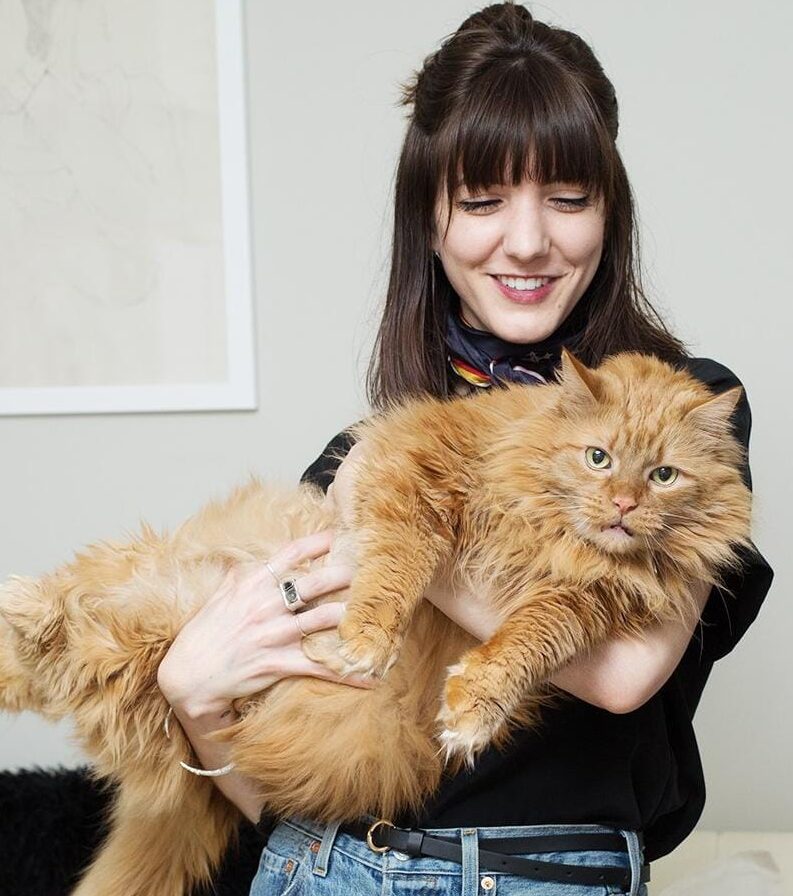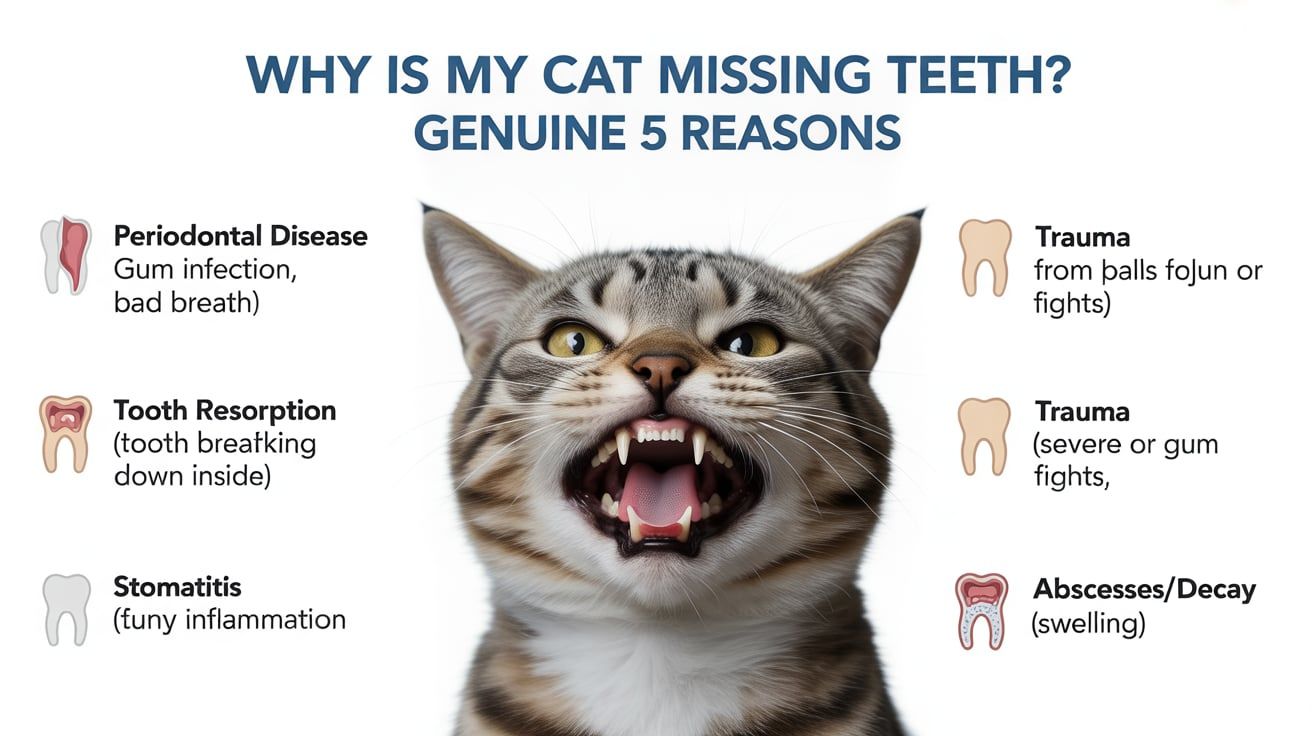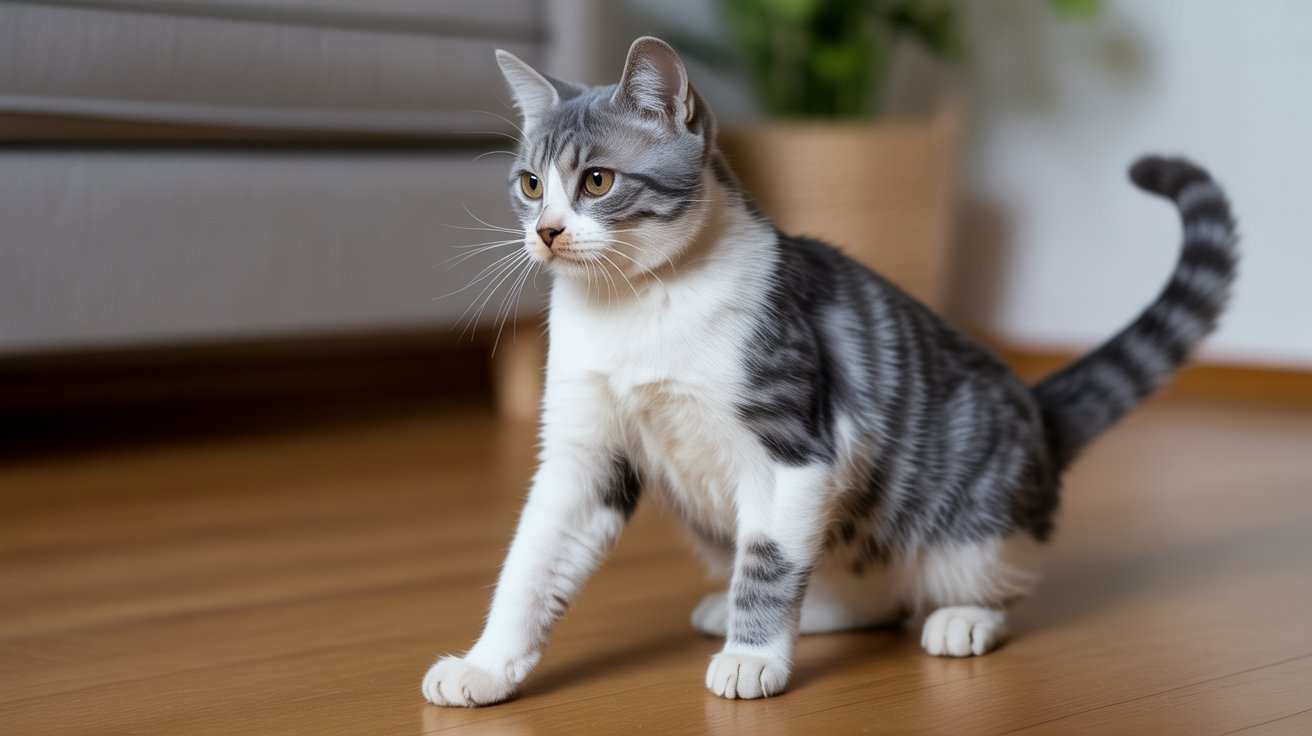Why Are Cats So Lazy? 7 reasons include energy saving, natural hunting rhythm, boredom, comfort seeking, aging, health issues, and warm environments.
Why Are Cats So Lazy?
Cats are renowned for their affinity for sleep. You see them stretched out on the couch, curled up in a ball, or napping in the sun for hours.
Many owners wonder, “Why are cats so lazy?“ The truth is, they’re not really lazy at all — just wired differently.
Cats sleep 12–16 hours a day (sometimes more!) to save energy, follow their natural rhythm, and stay ready for play or hunting.
In this guide, you’ll discover the real reasons behind cat “laziness” and when it could signal a health problem.
7 Reasons Why Cats Seem Lazy
| Reason | Why It Matters |
|---|---|
| 1. Save Energy (Evolution) | Cats rest so they can be ready for short, fast bursts of activity. |
| 2. Active at Dawn & Dusk | Illness or obesity can make a cat to become unusually tired. |
| 3. Natural Sleep Needs | Illness or obesity can cause a cat to become unusually tired. |
| 4. Age | Kittens and seniors sleep more than adult cats. |
| 5. Health | Illness or obesity can make a cat become unusually tired. |
| 6. Indoor Life | Indoor cats nap more if they are bored or under-stimulated. |
| 7. Personality or Breed | Some breeds are more playful, others are naturally calm. |
Lazy vs. Lethargic Cats
It’s essential to know the difference between a cat that is just lazy and one that is lethargic.
| Lazy Cat (Normal) | Lethargic Cat (Warning Sign) |
|---|---|
| Naps often but wakes up for food and play | Sleeps too much and ignores food or toys |
| Still grooms, stretches, and responds to you | Stops grooming and looks weak |
| Has zoomies in morning or evening | No energy at all, even during active times |
If your cat exhibits lethargic signs, contact your veterinarian.
Cats Conserve Energy
Wild cats expend a significant amount of energy hunting. They stalk, chase, and pounce in short, powerful bursts. After that, they need to rest and recover.
Your house cat doesn’t have to hunt for dinner anymore, but the instinct is still there. Sleeping most of the day is just their way of saving energy in case they need it.
Cats Sleep When We’re Awake
Cats are crepuscular — most active at dawn and dusk. That’s when their ancestors found it easiest to hunt.
So while you’re busy during the day, your cat is snoozing. Then, just as you’re going to bed or waking up, they’re ready to play or eat. This is why so many cats get the “zoomies” early in the morning.

Age and Health Matter
Sleep habits change with age:
- Kittens sleep a lot because their bodies are growing fast.
- Adult cats usually nap 12–16 hours daily.
- Senior cats can sleep for up to 18 hours as their energy levels slow down.
This is normal. But if your cat suddenly starts sleeping much more or acts weak, it could mean something is wrong. Conditions such as obesity, arthritis, thyroid problems, or infections can cause cats to become tired.
Indoor Life and Boredom
Indoor cats often seem “lazier” than outdoor cats. They don’t get as much natural exercise, like climbing or chasing. If life feels boring, they might nap out of habit.
You can help by:
- Adding cat trees, tunnels, or shelves for climbing.
- Playing with wand toys or lasers.
- Using puzzle feeders makes mealtime more enjoyable.
- Providing them with a window seat to watch the birds.
![A luxurious, fluffy white and silver Persian cat with green eyes lies on a cream-colored sofa, licking its lips. A potted white orchid is on a side table in the background. [Why Are Cats So Lazy?]](https://catscare.blog/wp-content/uploads/2025/09/Why-Are-Cats-So-Lazy-1-1024x574.jpg)
Even 10 minutes of play each day can make a significant difference.
Different Breeds, Different Habits
Not all cats are the same. Breed and personality play a role:
- Laid-back breeds like Ragdolls and Persians love lounging.
- Active breeds, such as Bengals and Abyssinians, tend to be more active and sleep less.
So, if your Persian seems lazier than your friend’s Bengal, that’s perfectly normal.
When to Worry About Laziness
Most of the time, your cat’s love of sleep is nothing to worry about. But sometimes too much rest is a sign of sickness. Look out for:

- Eating less or refusing food
- Hiding more often than usual
- Not playing at all
- Trouble walking or jumping
- Not grooming (messy coat)
- Sudden litter box changes
If you see more than one of these signs, call your vet.
How to Make a Lazy Cat More Active
You don’t need to keep your cat busy all day. A little daily activity is enough. Try these ideas:
- Play at dawn or dusk, when cats are most awake.
- Use toys that mimic prey, like feather wands.
- Rotate toys every week to keep things fresh and engaging.
- Train your cat with clickers and treats to engage its mental exercise.
- Encourage climbing with cat trees or shelves.
These small changes help keep your cat healthy and prevent boredom.
Quick Facts to Remember
- Cats sleep 12–16 hours a day (normal).
- Seniors may sleep even longer.
- Lazy = fine. Lethargic = not fine.
- Indoor cats nap more from boredom.
- Short playtimes each day keep them active.
![A fluffy ginger tabby cat is curled up in a tight ball and sleeping soundly on a white bed, illuminated by a patch of sunlight. [Why Are Cats So Lazy?]](https://catscare.blog/wp-content/uploads/2025/09/How-to-Make-a-Lazy-Cat-More-Active-1024x573.jpg)
FAQ
Q1: Is it normal for my cat to sleep all day?
Yes. Most cats sleep 12–16 hours. Kittens and seniors may sleep even longer.
Q2: Why is my cat lazy during the day but hyper at night?
Cats are crepuscular. They nap during the day and wake up around sunrise and sunset.
Q3: Can I make my lazy cat more playful?
Yes. Use toys, puzzle feeders, and short play sessions to keep your pet engaged and entertained. Even 10 minutes helps.
Q4: When should I worry about my cat’s laziness?
If your cat also exhibits symptoms such as eating less, hiding, stopping grooming, or avoiding play, it may be sick.
Q5: Do different breeds sleep differently?
Yes. Some breeds, like Bengals, are more active, while others, such as Persians, are naturally calm and tend to spend more time napping.

Hi, I’m Sana Sajid!I’m the voice behind CatsCare.blog, sharing my 10+ years of hands-on cat care experience. With a diploma in animal care, I offer practical tips, trusted advice, and easy-to-follow guides to help keep your cats healthy and happy.
When I’m not writing, I spend time with my own cats or exploring the latest developments in feline health. Follow CatsCare.blog for expert insights and real cat stories!

![A fluffy silver tabby cat with long fur is sprawled out and relaxing on a light-colored sofa, looking towards the camera. [Why Are Cats So Lazy?]](https://catscare.blog/wp-content/uploads/2025/09/why-are-cats-so-lazy.jpg)

![A close-up portrait of a calico cat (black, white, and orange markings) looking upwards with its mouth slightly open, showing its teeth and some dark pigmentation on its gums and lips. [Why are my Cat’s Gums Black]](https://catscare.blog/wp-content/uploads/2025/11/Why-are-my-Cats-Gums-Black.jpg)


2 thoughts on “Why Are Cats So Lazy? 7 Real Reasons & Easy Tips”